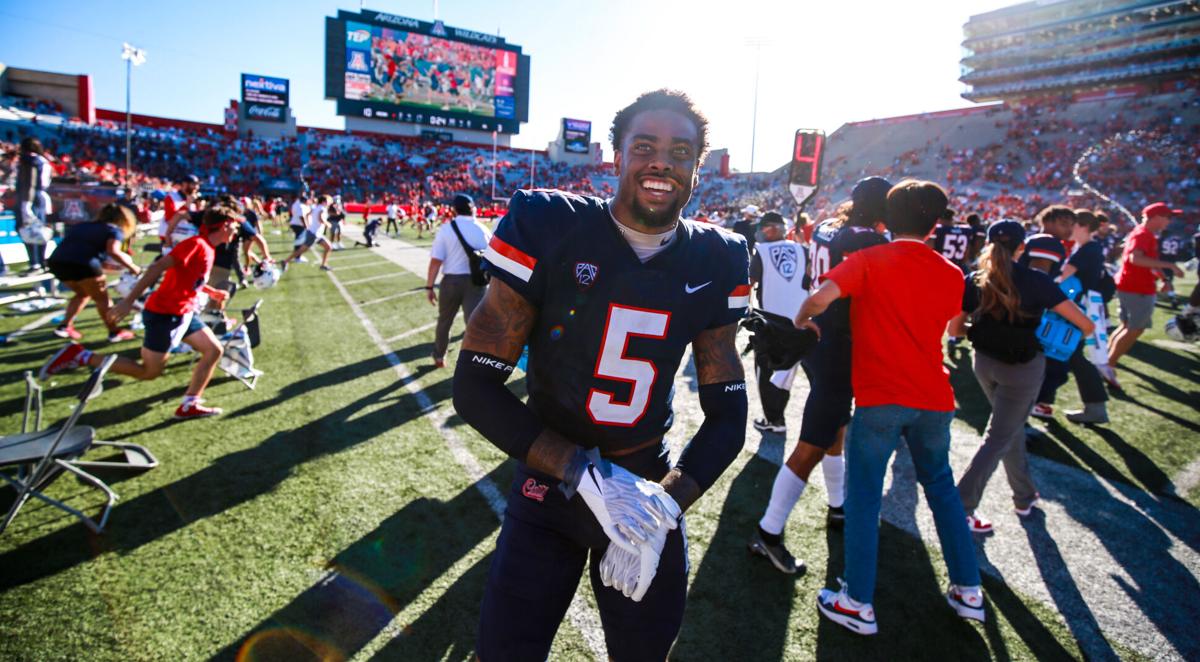A fellow sportswriter recently asked me a thought-provoking question:
“Would you rather cover a historically bad team or a historically good one?”
The subject came up because I was covering one of those two. When the conversation took place, the Arizona football team was still in the midst of a school-record losing streak that would swell to 20 games.
I didn’t hesitate with my response. I said I’d rather chronicle a great team than a terrible one.
I’ve experienced both worlds during my career and my time in Tucson.
In 2008, I covered a USC football team that went 12-1 and finished the season with a win over Penn State in the Rose Bowl. If the College Football Playoff existed back then, the Trojans would’ve been the team no one wanted to face.
In 2016, my first full year at the Star, the UA baseball team reached the College World Series final. The Wildcats came within one hit of winning the whole damn thing. It was riveting.
Then came the recent run for Arizona football. Whatever the opposite of riveting is — Miserable? Dreary? Excruciating? — it’s mostly been that.
But the reason I’d prefer to cover a good team has little to do with entertainment value or how enjoyable the experience is. It mostly has to do with the fact that I have to deal with the people involved in the wins and losses on a regular basis.
Yeah, it’s personal.
Losing gets old for all parties involved. As unfun as it is for fans and media, imagine what it’s like for the coaches and players. Then imagine having to talk to them about it again and again and again.
Anthony Pandy is a fifth-year linebacker for the Wildcats, who visit Arizona State for the annual season-ending Territorial Cup matchup Saturday. He graciously has made himself available for interviews multiple times during the streak.
How many times, though, can you ask the same player about the same painful subject?
It’s the job. I get that. Pandy gets it too. Although he isn’t a professional yet, Pandy has handled his media obligations like one. So have most of his teammates.
While their primary identity in the public eye is as football players, they’re people first. If you feel frustrated after a disheartening UA loss, they feel it times 10. They spend countless hours behind the scenes trying to put themselves in the best possible position to win during the 3½ hours you see them. They literally sacrifice their bodies for the cause.
Although we’re required to be objective as journalists, we’re people too. I felt empathy for the Wildcats — especially the players — as they endured the losing streak. I knew how much they had put into it — their craft, their passion, their pastime — and how little they were getting out of it.
Does that mean I was rooting for them? No. Well, not exactly.
I’ve been asked that question many times by people who aren’t in the business: “Do you root for the team you cover?”
This is what I always say: “No. But I like to see the kids do well.”
Sportswriters don’t root for one side or another. Or at least we’re not supposed to. You’ve heard the saying “no cheering in the press box,” right? That’s our code.
We do root for good stories, though. And for good people. Most student-athletes I’ve come across are good people.
There’s a business element to this too.
More fans are apt to read stories about winning teams than losing ones. Media companies need consumers. All writers want their stuff to be read. It was deeply satisfying during the UA baseball program’s two runs to the College World Series to realize I was providing a valuable service to the program’s relatively small but passionate fanbase.
(No set of stories generates more interest than coaching-search stories. I’ve already experienced that phenomenon multiple times. Clicks or no clicks, I have no desire to go there again anytime soon.)
As mentioned before, losing — repeatedly — gets tiresome. When you’re in the midst of a 20-game skid stretching over three seasons, it becomes challenging to come up with fresh ideas — especially when you know interest might be waning. (This is also known as “basketball season” around these parts.)
Funny story: I wrote the same lead to a game story, almost word for word, twice this season. “Just when you thought it couldn’t get any worse ...” Apparently, I didn’t think it could. Yet it did. Can you plagiarize yourself?
Funnier story: My wife, who isn’t a sports fan and rarely reads my stories unless I ask her to, is the only one who noticed.
I knew I had to up my game, and the following week seemed to offer the ideal opportunity. Arizona held a 16-7 lead over Washington early in the fourth quarter. The Wildcats had first-and-10 at the UW 28-yard line. This was it.
Then I made a rookie mistake. Readying my initial story for immediate publication after the final gun, I typed these words on my laptop: “The streak is over.”
You know what happened next. Interception. Blown lead. Another L. Rewrite!
It would take two more weeks for the outcome to change. Two more weeks until a different story could be written.
Arizona hasn’t won since. But that’s OK. The streak is over. I know I speak for many when I say: For that, I am thankful.





